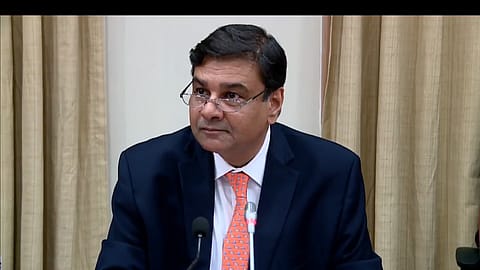RBI governor Urjit Patel quits citing personal reasons
Move seen as fallout of bitter spat with government, comes days before RBI board meeting slated for December 14

Days before the central board of the Reserve Bank of India (RBI) is to meet on December 14, embattled RBI governor Urjit Patel on Monday decided to put in his papers, citing ‘personal reasons’, in what is being seen in the financial markets as a direct fallout of the bruising spat between the country’s central bank and the government.
In a short statement put up on the RBI website, Patel, 54, merely said: “On account of personal reasons, I have decided to step down from my current position effective immediately. It has been my privilege and honour to serve in the Reserve Bank of India in various capacities over the years. The support and hard work of RBI staff, officers and management has been the proximate driver of the Bank’s considerable accomplishments in recent years. I take this opportunity to express gratitude to my colleagues and Directors of the RBI Central Board, and wish them all the best for the future.”
Patel’s resignation announcement, which came after market hours, sent shock waves through the financial community, since it was generally believed that despite the serious differences of opinion on a host of issues between the government and RBI, the hostilities had receded somewhat after the previous board meeting of November 19, where the two sides had agreed to a framework to work out some of the thorny issues. Patel had been fighting a battle with the government on issues relating to the autonomy of the central bank. The two sides were on opposite ends relating to how much of RBI’s reserves needed to be transferred to the centre, the amount of liquidity to be infused into the financial system and funding for small and medium enterprises.
The spat became public after Patel’s deputy, Viral Acharya, made a no-holds-barred speech warning about the potentially catastrophic fallout of undermining the central bank’s independence. The government retaliated in what became an unsavoury, and rather unprecedented, media war between the two sides. At that time, rumours had begun swirling that Patel would put in his papers as the attack from the finance ministry got sharper.
However, after the November 19 board meeting it was widely believed that things were gradually coming back to a situation where the differences would be worked upon and the government and the RBI would be able to work together. An RBI board member had also told Fortune India that Patel was unlikely to resign and the government would not invoke section 7 of the RBI Act, under which it could give directions to the central bank.
But Patel’s resignation now brings the spotlight firmly back to the spat and is bound to be widely analysed by the international financial community and foreign institutional investors as well.
Former finance minister Yashwant Sinha, now a vocal critic of the Narendra Modi government, told television channel CNBC-TV18: “After the last board meeting of RBI, it was pointed out that everything was hunky-dory, that all the issues have been resolved. So quite clearly the resignation of Patel shows that nothing has changed and things are as bad as before."
Recommended Stories
Mark Williams, chief Asia economist, Capital Economics says Patel’s resignation signals that, “the government has come out on top in its dispute with the central bank, but at the cost of undermining the RBI’s credibility and its inflation-fighting credentials.”
Prior to taking over as RBI governor on September 4, 2016, Patel had served as deputy governor for three years. While viewed as reticent, Patel was seen mainly as a doer, preferring to shun the limelight and concentrating on managing the affairs at the central bank. In 2014, Patel was also the head of the committee that moved RBI to an inflation-targeting regime, with consumer price inflation as the key focus.
Prime Minister Narendra Modi and finance minister Arun Jaitley’s initial reactions: